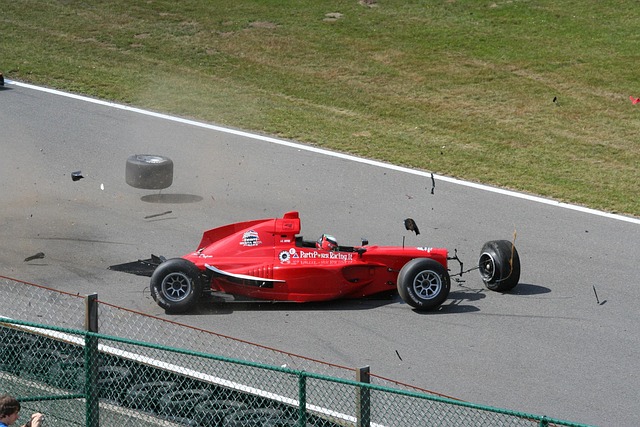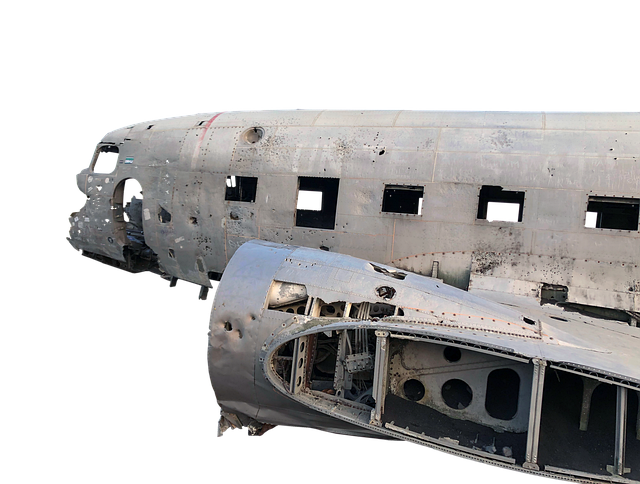Compensation for Emotional Distress After Truck Accidents: Legal Guide to Recovery

Truck accidents can lead to severe emotional distress, causing long-term mental health challenges li…….
In the vast network of transportation, trucks play a pivotal role in moving goods and people across borders and continents. However, with this vital role comes an unfortunate reality—truck accidents. These incidents can have devastating consequences, leading to injuries, loss of life, and significant economic impacts. Truck accident compensation emerges as a crucial mechanism to address these repercussions, offering a measure of support and justice to those affected. This comprehensive article aims to delve into the intricate world of truck accident compensation, exploring its various facets, global implications, and the journey towards better safety standards. By understanding this process, we can advocate for improvements in transportation safety and ensure fair outcomes for all involved.
Truck accident compensation is a legal and financial mechanism designed to provide redress and support to individuals or entities affected by truck-related collisions. It encompasses several key elements:
The concept of compensating victims of truck accidents has evolved over the years in response to increasing concerns about road safety and the unique challenges posed by commercial trucking. Historically, truck accident compensation has been shaped by:
The significance of truck accident compensation lies in its ability to:
Truck accident compensation is a global phenomenon, with each country tailoring its approach to align with local legal systems, cultural norms, and economic conditions. Key international influences include:
Regional trends reflect diverse cultural, economic, and political landscapes:
| Region | Trends | Examples |
|---|---|---|
| North America | Stricter liability laws for trucking companies | The U.S. Federal Motor Carrier Safety Administration (FMCSA) enforces rigorous safety standards and regular inspections. |
| Europe | Increased focus on electronic logging devices (ELDs) | ELDs track driver behavior, ensuring compliance with hours-of-service regulations, thereby reducing fatigue-related accidents. |
| Asia | Rising demand for comprehensive insurance coverage | In China, the growth of long-distance trucking has led to a higher adoption of insurance policies that offer broader protection. |
| Africa | Challenges in enforcing safety standards | Some African countries struggle with inadequate road infrastructure and inconsistent enforcement of truck regulations, leading to more frequent accidents. |
The truck accident compensation market is influenced by several economic factors:
Insurance companies and investment firms show a keen interest in this sector:
Within economic systems, truck accident compensation serves several purposes:
Technology plays a transformative role in the landscape of truck accident compensation:
The future holds immense potential for technological advancements to shape truck accident compensation:
The regulatory environment for truck accident compensation is multifaceted:
Policies and regulations profoundly impact the following aspects:
Despite its benefits, truck accident compensation faces several challenges:
Addressing these challenges requires a multi-faceted approach:
The Netherlands has implemented a comprehensive truck accident compensation system that exemplifies best practices. Key features include:
Japan’s truck accident compensation system is characterized by:
Australia’s approach to truck accident compensation leverages data analytics for better outcomes:
The future of truck accident compensation holds several growth areas:
Several emerging trends are shaping the industry:
To navigate future prospects successfully:
Truck accident compensation is a critical mechanism for addressing the multifaceted challenges posed by truck-related collisions. This comprehensive article has explored various facets of this complex issue, from its historical context and global impact to economic considerations, technological advancements, and policy frameworks. By examining real-world examples and identifying challenges, we can gain valuable insights into shaping a better future for road safety.
The significance of truck accident compensation lies in its ability to:
Q: What happens if a truck driver is at fault in an accident?
A: In most jurisdictions, truck drivers are held liable for their actions leading to accidents. Compensation claims may include medical expenses, lost wages, property damage, and pain and suffering. The extent of liability and compensation can vary based on local laws and the specific circumstances of the accident.
Q: Are there any limitations on the amount of compensation I can receive?
A: Yes, insurance policies typically have maximum payout limits for various types of damages. These limits are determined by factors such as policy coverage, local regulations, and the severity of injuries. It’s essential to understand your policy details and explore legal options if needed.
Q: How do I know if I’m entitled to compensation after a truck accident?
A: Entitlement depends on various factors, including jurisdiction, fault determination, and the nature of damages. Typically, you must establish that the truck driver or trucking company was negligent, and their actions directly caused your injuries or losses. Legal consultation is advisable to assess your specific case.
Q: Can technology completely replace human drivers in trucks?
A: While technology can significantly enhance safety and reduce accidents, it is unlikely to completely replace human drivers anytime soon. Many aspects of trucking, such as complex decision-making, adaptability to changing road conditions, and vehicle maintenance, still require human expertise and judgment.

Truck accidents can lead to severe emotional distress, causing long-term mental health challenges li…….

In the event of a truck accident, compensation goes beyond immediate medical bills and pain and suff…….

Navigating a truck accident compensation claim is complex due to unique scenarios involving commerci…….

In truck accidents, truck accident compensation for pain and suffering, a key component of overall d…….

After a truck accident, understanding your legal rights for truck accident compensation is vital. In…….

Commercial insurance coverage for trucks plays a vital role in risk management, offering comprehensi…….

Truck accident compensation varies greatly based on injury severity and property damage extent. Seve…….

Truck accidents cause severe physical injuries, high medical bills, and long-term disabilities, impa…….

In case of a wrongful death caused by a truck accident, survivors can seek truck accident compensati…….

Truck accident compensation is a multifaceted settlement designed to cover various costs and losses…….